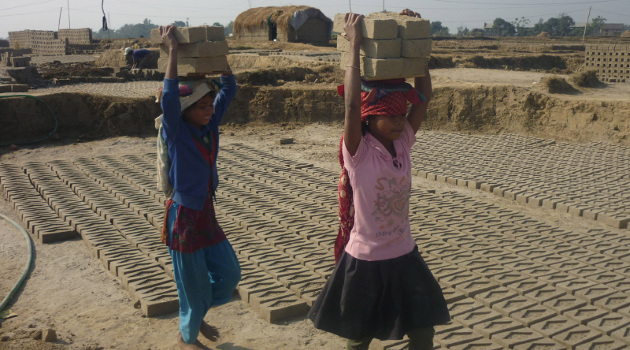I’ve written many times about the gap between intentions and results in government. It’s very common to see politicians vote for laws that (at least in some cases) they think will help people, but they fail to recognize the indirect or second-order effects of government intervention.
- Consider, for instance, minimum-wage mandates that cause unemployment.
- Or anti-discrimination laws that hurt blacks and other minorities.
- How about class-warfare policies that result in lower pay for workers.
- And redistribution programs that trap people in poverty.
Now we have another example. Almost all politicians will agree that it’s a good idea to prohibit child labor in poor nations. But what if poor families don’t have any better options? Could it be that government intervention will hurt the people who are supposed to be helped?
According to the World Bank (not normally a hotbed of libertarian thought), the answer is yes.
The study explores the law that increased the minimum employment age from 14 to 16 in Brazil in 1998, and uncovers its impact on time allocated to schooling and work in the short term and on school attainment and labor market outcomes in the long term. The analysis uses cross-sectional data from 1998 to 2014… The estimates show that the ban reduced the incidence of boys in paid work activities by 4 percentage points or 27 percent. …The study follows the same cohort affected by the ban over the years, and finds that the short-term effects persisted until 2003 when the boys turned 18. The study pooled data from 2007 to 2014 to check whether the ban affected individuals’ stock of human capital and labor market outcomes. The estimates suggest that the ban did not have long-term effects for the whole cohort, but found some indication that it did negatively affect the log earnings of individuals at the lower tail of the earnings distribution.
So the bottom line is that lower-skilled workers missed a chance to earn money when they were young and they then suffered income losses over time as well.
Bastiat certainly wouldn’t be surprised by this outcome. And if the lower-skilled workers understood how they were hurt, I’m sure that they wouldn’t feel very grateful to politicians for their “compassion.”
P.S. This reminds me of the “sweatshop” controversy. The left wants to ban factory work in the developing world because they don’t understand or appreciate that such jobs are a great opportunity when nations are at a certain stage of development.
P.P.S. This isn’t the first time that the World Bank has produced good research. In 2014, the bureaucrats released a good study showing how high tax rates facilitate corruption. And in 2012, they issued a study explaining how large public sectors undermine prosperity.

